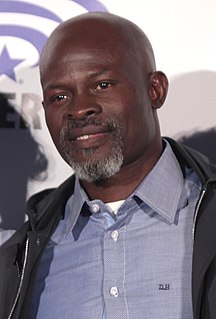A Quote by Patrick Lencioni
Smart people tend to know what is happening in a group situation and how to deal with others in the most effective way. They ask good questions, listen to what others are saying, and stay engaged in conversations intently.
Related Quotes
Recently it was pointed out to me - in a kind of hurtful way, to be honest - that people in Los Angeles are aurally challenged. That is, at social events, we simply do not listen to others. We do not ask them questions about themselves, we do not nod attentively when they speak; really, if we were to examine ourselves, we would realize that we simply have no interest in others at all.
An effective leader is willing to think about what's happening and how to understand what's going on. Facilitating flow and making others more conscious of it, the leader communicates an awareness of process to the group, making them more aware of their energies and options. One important principle is to keep track of who has not spoken. ... It's also important to notice when people do speak out but are not heard. Effective leaders practice patience, reminding themselves to wait and observe, remembering that there's always more going on in a group than we're consciously aware of.
A Winner's Blueprint for Achievement BELIEVE while others are doubting. PLAN while others are playing. STUDY while others are sleeping. DECIDE while others are delaying. PREPARE while others are daydreaming. BEGIN while others are procrastinating. WORK while others are wishing. SAVE while others are wasting. LISTEN while others are talking. SMILE while others are frowning. COMMEND while others are criticizing. PERSIST while others are quitting.
Christians tend to motivate others with guilt. We tend to say: You would do this if you were really committed Christians, indicating that we are committed and all that is needed is for others to become as good as we are! This is why so many churches quench the motivation of people for ministry. In our shoes, Paul would say: Remember the grace God has showered on you—what does living out and enjoying that grace look like in this situation?
But even if we were to disappear, people would still be divided into people and Others. No matter how those Others were different.People can't get by without Others. Put two people on an uninhabited island, and you'll have a human being and an Other. And the difference is that an Other is always tormented by his differentness. It's easier for people. They know they're people, and that's what they ought to be. And they all have no choice but to be that way. All of them, forever.
I think I'm a reporter's editor. Being a good reporter is a specific skill, one I admire and don't possess myself - I appreciate people who know how to ask the right questions, who are excellent researchers, who know how to assemble information, and I enjoy working with them to shape their information into an article. Good reporters tend to be receptive to editing, and to a more collaborative form of writing in general, and you always end up learning more from how they work than you expect you will.
Individuals understood in relational terms cannot be conceived as fully separate from their communities. Others in one's community may already be a part of the self. This conception of the person as overlapping in identity with others has normative implications for what constitutes the good of the individual and how that good relates to the good of others. One's relationship with others can form a part of one's good as an individual, such that one can have a compelling interest in the welfare of these others and in one's relationship with them.






































